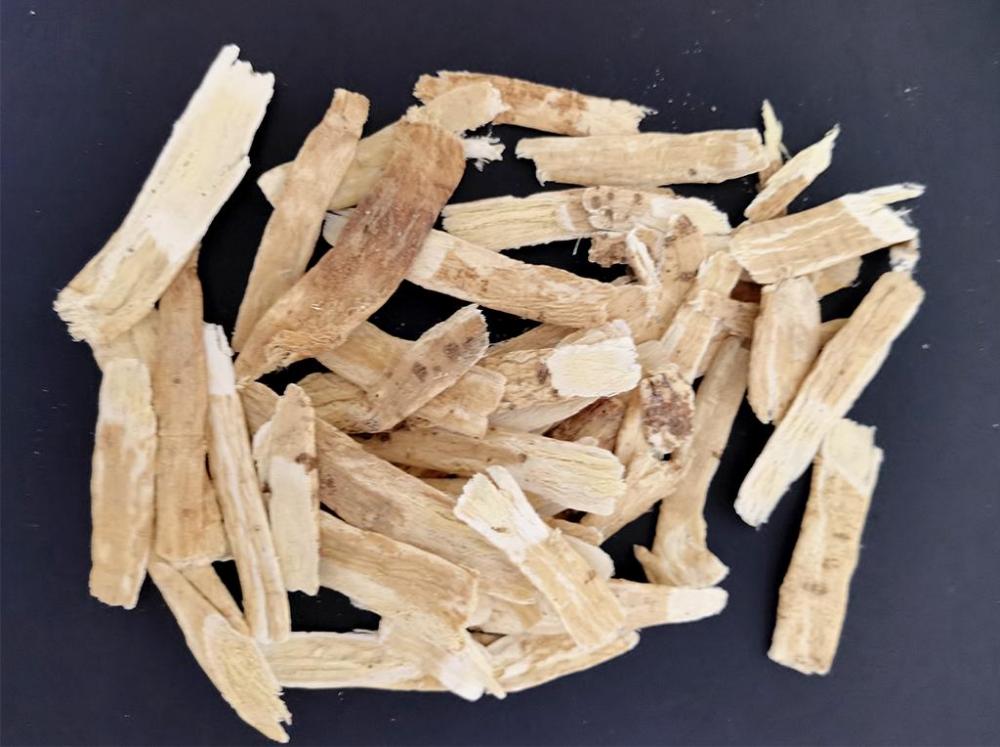37. 黄芪 (huáng qí) – Milk vetch – Astragalus membranaceus
This is more of a warning than a recommendation.
Astralagus is another plant common to the northern hemisphere, but found in the temperate zone. There are over 3,000 species in the family. Not all are edible and some are downright dangerous. As with wild mushrooms, never consume any anything unless you are 110% sure what species it really is.
In China and Mongolia, 黄芪 (huáng qí) or 北芪 (běi qí) refers to the root of Astragalus membranaceus aka Astragalus propinquus. It has been used in traditional Mongolian and Chinese medicine (TCM) for over 2,000 years, but there is no scientific evidence it does any good for anything. In fact, most scientific evidence points away from that.
The dried root is sliced and sold in my local supermarkets to be added to soups and hot pots, but it is most commonly used here in so-called food supplements such as Lectranal, popular with shamans, food faddists and ‘wellness’ experts idiots who believe it can ‘cure’ hay fever’ a form of allergic rhinitis. The only wellness those people are interested in is the wellness of their bank balances. /endrant
QuoteWhat Do We Know About Safety?
Astragalus may be safe when used orally and appropriately. (Doses up to 60 grams daily for up to 4 months have been used without reported adverse effects.) Some possible side effects with oral use include rash, itching, nasal symptoms, or stomach discomfort, but these are uncommon.
Astragalus may interact with medications that suppress the immune system.
Some astragalus species, usually not found in dietary supplements, can be toxic to livestock. Several species that grow in the United States contain the neurotoxin swainsonine and have caused “locoweed” poisoning in animals. Other species contain potentially toxic levels of selenium. Too much selenium can lead to diarrhea, irritability, nausea, skin rashes, and nervous system problems.
Little is known about whether it’s safe to use astragalus during pregnancy or while breastfeeding. Some research in animals suggests that astragalus can be toxic to the mother and fetus.
.
U.S. Department of Health and Human Services
So my sincere advice is to have nothing to do with it. Try horse de-wormer instead!




